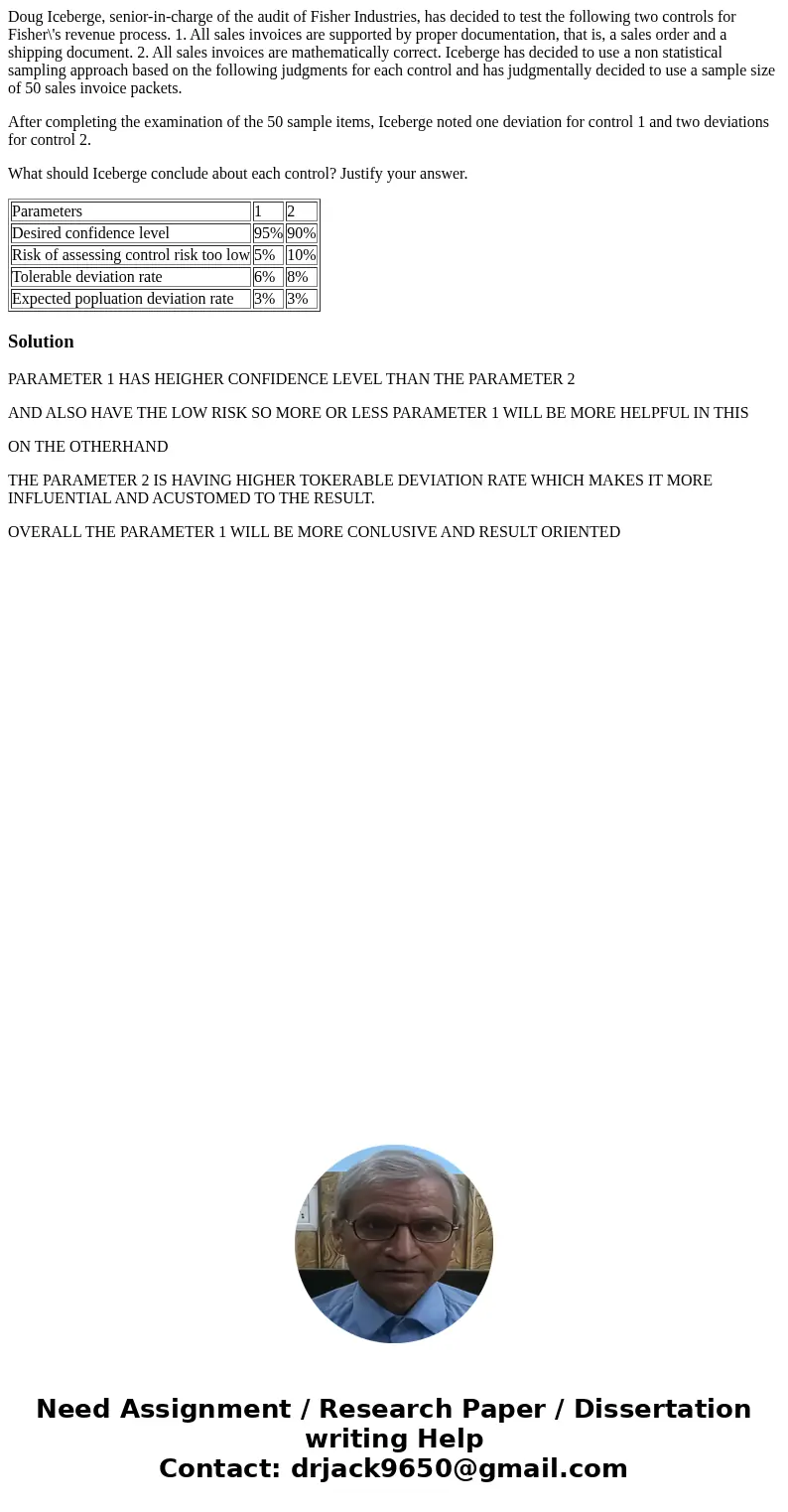Doug Iceberge seniorincharge of the audit of Fisher Industri
Doug Iceberge, senior-in-charge of the audit of Fisher Industries, has decided to test the following two controls for Fisher\'s revenue process. 1. All sales invoices are supported by proper documentation, that is, a sales order and a shipping document. 2. All sales invoices are mathematically correct. Iceberge has decided to use a non statistical sampling approach based on the following judgments for each control and has judgmentally decided to use a sample size of 50 sales invoice packets.
After completing the examination of the 50 sample items, Iceberge noted one deviation for control 1 and two deviations for control 2.
What should Iceberge conclude about each control? Justify your answer.
| Parameters | 1 | 2 |
| Desired confidence level | 95% | 90% |
| Risk of assessing control risk too low | 5% | 10% |
| Tolerable deviation rate | 6% | 8% |
| Expected popluation deviation rate | 3% | 3% |
Solution
PARAMETER 1 HAS HEIGHER CONFIDENCE LEVEL THAN THE PARAMETER 2
AND ALSO HAVE THE LOW RISK SO MORE OR LESS PARAMETER 1 WILL BE MORE HELPFUL IN THIS
ON THE OTHERHAND
THE PARAMETER 2 IS HAVING HIGHER TOKERABLE DEVIATION RATE WHICH MAKES IT MORE INFLUENTIAL AND ACUSTOMED TO THE RESULT.
OVERALL THE PARAMETER 1 WILL BE MORE CONLUSIVE AND RESULT ORIENTED

 Homework Sourse
Homework Sourse